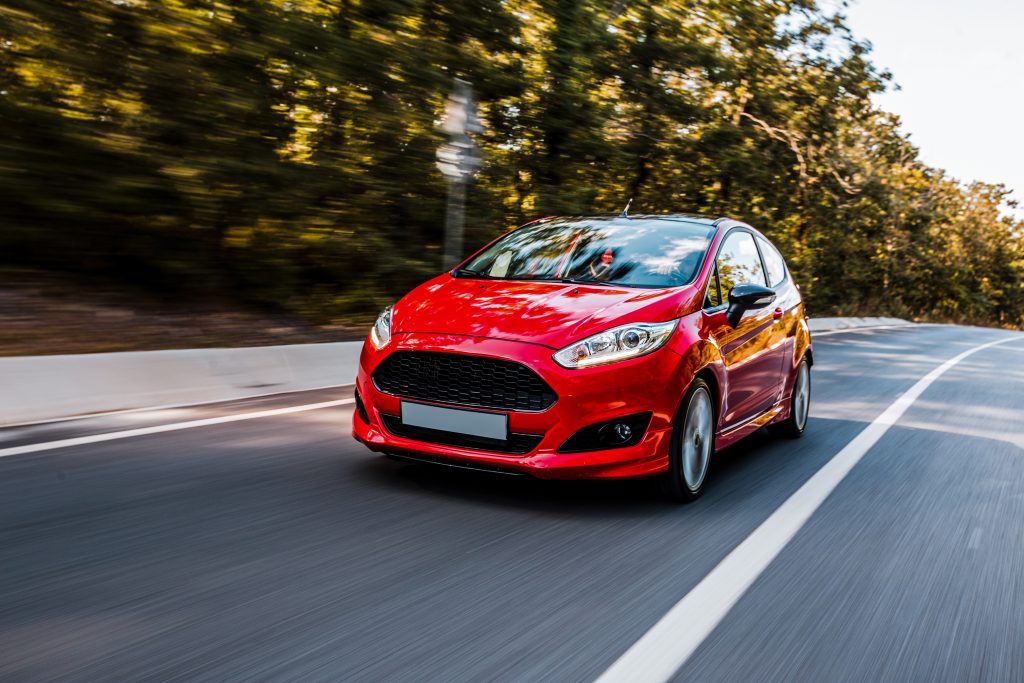Driver Defense Team: Bridgeview Traffic Violation Attorneys
As Bridgeview Traffic Violation Lawyers, we are very familiar with the process and procedure in Bridgeview. In addition, we have established a relationship with the prosecutors and the judges. The most common traffic offenses we see in the misdemeanor courtrooms are “Aggravated” Speeding Tickets (speeding tickets in excess of 26 MPH), Driving with a suspended license, and Driving Under the Influence (DUI). You must appear in court on these types of tickets or you risk the judge issuing a warrant for your arrest.
One of the more common misdemeanors that we see in Bridgeview is an Aggravated Speeding Ticket, which is anything 26 MPH or more over the speed limit. Most people do not realize that this is actually an offense in which you can go to jail or face fines in the amount of $2,500. In fact, there is a Judge in Bridgeview that will take a person into custody on the day of court if that person is written a speeding ticket of 100 MPH or more over.
Several judges in Bridgeview now require that you complete the Sheriff’s Work Alternative Program (SWAP) as part of any sentence for an Aggravated Speeding Ticket. This is a type of community service that takes place at Cook County public buildings and locations.
Been Issued a Traffic Ticket? What You Should Do
For petty offense traffic tickets, you do not need to appear in court. You have the option of signing an affidavit, granting us, as your attorney the ability to appear in your place. We are able to determine if the officer who issued you the ticket is in court. If he is not, it is possible to get the ticket dismissed.
We are also able to negotiate with the prosecutors and the judges on your behalf. This is very useful for those individuals with a Commercial Driver’s License (CDL) who may be from another state or out of town on the day of court. It is also possible to get a CDL driver’s ticket amended to a non-moving violation, so it does not affect his or her ability to operate a commercial vehicle.
If you receive a petty offense traffic citation, it is also possible to mail in the payment of either $120 or $140 and take a conviction on the ticket. While this may be cheaper than the court costs outlined above, this will result in a conviction being entered in against your driving record. Three convictions within any 12-month period will result in your driving privileges being suspended. A conviction will also have the likelihood of raising your insurance rates.
The other option on a petty offense ticket out of Bridgeview is to do online or in-person traffic safety school. The first petty offense ticket you receive is eligible to be taken online. The fee for this is $166 if the speed is 1-20 MPH over. It is $186 if it is 21-30 MPH over.
The traffic safety school DOES NOT mean that you ticket is dismissed. It just means that the ticket is entered on your driving record as court supervision (meaning it is not a conviction).
Bridgeview Courthouse
The “Bridgeview” Courthouse is also known as the Fifth District of Cook County Circuit Court. The Courthouse handles cases from Bridgeview and the surrounding cities, villages, and towns. The traffic courtrooms are divided into “Felony”, “Misdemeanor”, and “Petty” traffic offenses.
The Bridgeview Courthouse is located at 10220 S 76th Ave. Courtrooms 110, 109, and 104 handle Felony traffic offenses. These are offenses of the most serious nature, where an individual can face lengthy jail sentences and the highest fines.
Courtrooms 102, 105, 207, and 208 handle Misdemeanor traffic offenses. These are still serious (you can still face some jail time) but are less serious than felony offenses. The Cook County State’s Attorney prosecutes these types of offenses.
Courtrooms 201, 109, and 210 handle petty offenses tickets. These are your typical speeding tickets where you face just a fine and court costs. The typical court costs in Bridgeview for these offenses are $214; however, you may face a fine normally in the range of $10-100. Private attorneys hired by the Villages and Cities represent the prosecution on these types of tickets.
What Are the 3 Most Common Traffic Violations in Bridgeview, Illinois?
Traffic violations can range from minor to serious, but there are negative consequences for all of them. If you’re convicted of a traffic violation, you can face penalties ranging from a few points on your license and a small fee to thousands of dollars in fees and jail time.
The best way to avoid traffic violations and the woes that can come with them is by understanding and obeying traffic laws. Check out some of the most common moving violations in Illinois below to learn how to avoid some of the most expensive traffic violations.
Things do happen on the road, though, and drivers and law enforcement officers alike can make mistakes. If you’re facing a traffic violation, consulting with an Illinois driver defense lawyer can help you understand your options for protecting your interests and future.
What Is Considered a Moving Violation in Illinois?
Under Illinois law, traffic violations are divided into two broad categories: moving violations and non-moving violations. For the most part, the difference between the two is that a moving violation occurs and is relevant to the vehicle being in motion. A non-moving violation occurs when the car is not in motion or has nothing to do with the motion of the car.
Examples of non-moving violations include having a registration or driver’s license that is expired, driving with a broken taillight, getting parking tickets of various types, or stopping in a no-stopping zone. Examples of moving violations include speeding, failure to stop, following too closely, failure to yield, and DUI.
In general, moving violations are more serious offenses than non-moving violations overall, though there may be exceptions. Moving violations may come with higher fines and a greater potential for loss of your license.
3 of the Most Common Moving Violations in Bridgeview, Illinois
Everquote, an online insurance aggregator, asks people about past traffic violations during the quote process for auto insurance. Everquote published some Illinois driver ticket information based on millions of answers on quote forms, providing insight into the most common moving violations in the state.
1. Speeding-Related Tickets
Tickets related to speeding are the most common non-accident offense reported by drivers to Everquote. Speeding can be a serious traffic violation that even results in jail time depending on the factors of the case.
While the fines and penalties you can face for speeding depend on where you were speeding, how fast you were going, and whether other factors — such as an accident — were involved, if you’re convicted of speeding, you could face up to thousands of dollars in fines and up to one year in jail. You’ll also take a hit with points on your license, which can drive up your insurance costs and potentially result in a license suspension if you have too many points already.
Typically, speeding tickets get most serious when you drive more than 25 miles per hour over the speed limit. Driving 26 to 34 mph above the speed limit is considered a Class B misdemeanor, and driving 35 mph or more above the speed limit is considered a Class A misdemeanor. The first can lead to jail time of up to six months and fines up to $1,500. The second can lead to jail time of up to a year and fines up to $2,500.
2. Failure to Stop Tickets
Aside from accident-related violations reported to Everquote, the next most-common traffic violation reported was failure to stop.
Drivers in Illinois are required to stop at intersections and other locations when signs, lights, or traffic laws demand it. Some times when you must stop include:
- On red at a traffic light
- At a stop sign
- At railroad tracks when lights or gates indicate an oncoming train
- For pedestrians in areas where there is a pedestrian right-of-way
A ticket for failure to stop can result in a fine of around $100, though it can be more depending on the circumstances. You can also have up to 20 points added to your driving record, potentially leading to an increase in your auto insurance.
However, some failure to stop actions could result in reckless driving charges. That can lead to more serious penalties, including thousands of dollars in fines, potential suspension of your driver’s license depending on your driving record, and even jail time.
3. Driving on a Suspended License
A third common offense reported to Everquote is driving on a suspended license. This is a serious offense that can result in a fine of up to $2,500 and up to a year in jail. That’s true even if it’s your first offense.
Other Common Traffic Violations in Bridgeview, Illinois
Some other traffic violations that are common in the state include:
- DUI
- Reckless driving
- Illegal U-turn
- Failure to yield
- Leaving the scene of an accident
- Failing to wear a seatbelt
- Texting or using a cell phone while driving
How Driver Defense Team Can Help
As you can see, the details matter when you’re facing a traffic violation charge. Something like the difference between driving 50 mph when the speed limit is 35 versus driving 51 mph when the speed limit is 35 can make a huge difference to the penalties you’re facing and the potential outcome of your case.
Working with an experienced driver defense team can help you protect your access to a driver’s license. Reach out to the Driver Defense Team’s DUI and traffic lawyers if you are facing a traffic charge to find out what options you have moving forward.
Any type of traffic citation that you receive in Bridgeview is complicated enough that you should consult with one of our Bridgeview Traffic Violation Lawyers. We will be able to give you information about what courtroom you are in, what kind of sentence you could possibly face, and what the best approach is to your case. Call us today at (312) 940-8330 or contact us to receive a free consultation and a price quote to handle your case.



